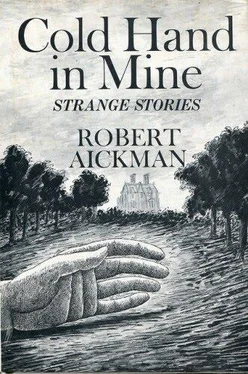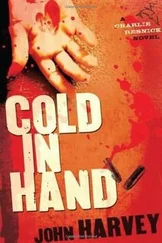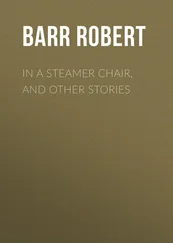And then there was the mystery of the firm's clients. The mystery was that one never seemed to see one: only the internal staff seething up and down.
"Have you ever seen any?" I asked Maureen.
"Mr Millar says there are a lot of people who've been with them a long time."
"I wouldn't care to be among them."
"How can we tell?" responded Maureen vaguely.
I noticed that Maureen had ceased asking me whether I had met Mr Millar.
I suppose the number of letters arriving each morning might have given some idea of how much genuine business there was. But here I was at a disadvantage. Authors are not normally early risers. In the old days I had put on my dressing gown (quite faded and stained-even torn, I believe) and descended to the shelf in the hall without giving a thought to what the Freedom people might think about me, numerous though they were (as I then considered). Now it seemed quite impossible: partly because of the girls, of course, but not entirely. So my slender morning post, even the ill-made packages from Major Valentine, had to await my being shaved and fully dressed; and by then any post there might have been for the people below had been long "taken in", as the expression is. This was all the more unavoidable in that usually I made my simple breakfast before shaving and dressing, and could see no reason why I should change my ways because of Mr Millar and his merry men. But I think also that I had very little wish to know more of what went on below me. I have just spoken of "genuine" business. I found it hard to believe there was much of it, though I could not even surmise what went on all the rest of the time. It is true that I found odd letters for the firm at other times of the day: almost all of them impersonal emanations on his Majesty's service. They did, I realized, suggest there might be some accountancy in hand. I recollected an uncle of my mother's once observing that figures, my boy, are only a very small part of what a successful accountant does. And, indeed, I still do not know what did go on in that office. I have related my impressions as clearly as I can; but new developments began to seem of more importance.
I think it must have been at least a month before I even set eyes upon Mr Millar. For obscure reasons, Maureen and I had altogether ceased referring to him. Then, all at once, I not only saw him but had to talk to him, with very little warning or preparation; and à deux .
One Friday, in the late afternoon, at half past five perhaps, my own rather noisy doorbell suddenly rang. I say "suddenly" because I had heard no steps coming up my staircase, which remained uncarpeted. Swearing, I threw my raincoat over the current material from Valentine, and went to see who it was. A man stood there.
"I'm Millar." But he did not offer to shake hands, as one usually did in those days, and his eyes wandered about, never once looking into mine, but not, as I thought, examining my humble environment either. "Won't you come in for a drink?" he said. "Just on the floor below. And of course bring anyone with you."
I need hardly say I did not want to, but I could think of no way to refuse, and it would be no doubt unwise to make an enemy. So I got out something affirmative.
"Come when you're ready. Second floor."
It seemed a slightly odd way of putting it; but, for that matter, it was perfectly obvious that there was no one "with me", not even a girl pushed into a cupboard. Without another word, Mr Millar descended. I saw that he was wearing beige suède shoes, doubtless with crêpe rubber soles. And of course he was in his braces, like the rest of them.
I was glad to have a few minutes for rehabilitation. One does not wear one's best clothes for editing a pornographic manuscript alone in an attic; and also I had in those days a habit of unconsciously running my right hand (I am left-handed) through my hair as I wrote, wrecking whatever parting there might have been, and making myself look like the picture in the German book for children, my hair being then unusually thick and wiry. I changed my shirt, put on my old school tie (such as it was), and tried my luck with the comb.
Then, striving to think about nothing, I plunged through the door on the second floor landing. I had been in there several times during the Freedom period, but everything was now very different. The walls of the outer room had been newly papered in pink with a cornice of flowers, and were decorated with what appeared to be small English landscape paintings, probably by an amateur, and framed in nothing more permanent than passe-partout . There were a surprising number of them, not all exactly on a level from the floor. In the middle of the room was a desk, obviously new; but with nothing on it, not even a cloaked typewriter, or a rubber-out. Also I was alone. But the door into the further room was ajar. I went up to it. "Anyone at home?" I said.
Mr Millar drew the door fully open. "Come in," he said, still neither looking me in the eye nor offering his hand. Also he was still without his jacket.
"No one with you?" He seemed disappointed, though, as I have said, it was absurd.
"No," I said. "Only me."
"Working?" He said it not in the way of apology for interrupting me, or even in the way of making conversation, but rather as if he referred to some unusual hobby he had heard I went in for.
"Yes. But it doesn't matter. I'm glad of a break." That, of course, was not the exact truth.
"Sherry?"
The bottle indicated that it came from one of the colonies, and the three glasses on Mr Millar's desk were from the threepenny and sixpenny store. One is not supposed to say such things so plainly, but on this occasion I think they are of significance. Conclusive perhaps was that the bottle had to be opened, and some small shavings or chippings brushed out of two glasses with the back of a carbon paper, before they could be used. It seemed clear that the feast had been assembled especially for me.
"Thank you very much."
It was not a matter of an alternative to sherry. Obviously there was none.
Mr Millar fumbled away with a not very good corkscrew; one (as I knew even then) with too small a radius to the screw and too slender and cutting a handle. I almost felt that I should offer to help. I was quite sure that at least I should say something, as time was passing in silence while the cork split off and refused to come out; but I could think of nothing to the purpose.
I had not been offered a seat, though there were two new office chairs, as well as the one behind Mr Millar's equally new desk. Mr Millar's desk was in imitation mahogany, where the desk outside imitated some much lighter and yellower wood. The sanctum was papered in light purple, or perhaps deep mauve: I can see it now, even though I never saw it again after this one visit, and quite a brief visit too, as will be seen. There was also some purple stuff on the centre part of the floor, where the desk stood; though the purple was not the same. There were four or five old portraits of the kind one can buy twice a week at certain auction-rooms. Normally such portraits are genuinely ancient, but of limited artistic value. They are like the "old books" which so many people believe to be of great value but which, though quite truly old, prove almost impossible to sell at all in the hour of need. These specimens were of seventeenth- and eighteenth-century gentry in lace and wigs, four men and one woman; and they were in battered, discoloured frames. The one woman was elderly and unexceptional. Somehow it could not occur to one that these could be likenesses of Mr Millar's own ancestors.
"Pity there was no one with you," said Mr Millar, pouring out. He fished out from one glass a scrap of tinfoil dropped off the bottle. That was quite a job too, as only a paperknife was available to do it.
Читать дальше












